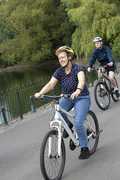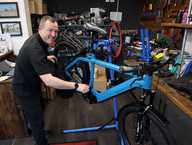The North East has pioneered the development of low carbon vehicles, with Nissan investments into the Leaf triggering investment into battery development and manufacturing, and parallel investments into charging infrastructure.
Decarbonisation has been placed at the heart of the North East Transport Plan (2021-2035) and aims to improve health, air quality and the performance of our economy with an integrated focus on public transport, promotion of active travel, and decarbonisation of private and commercial vehicles.












